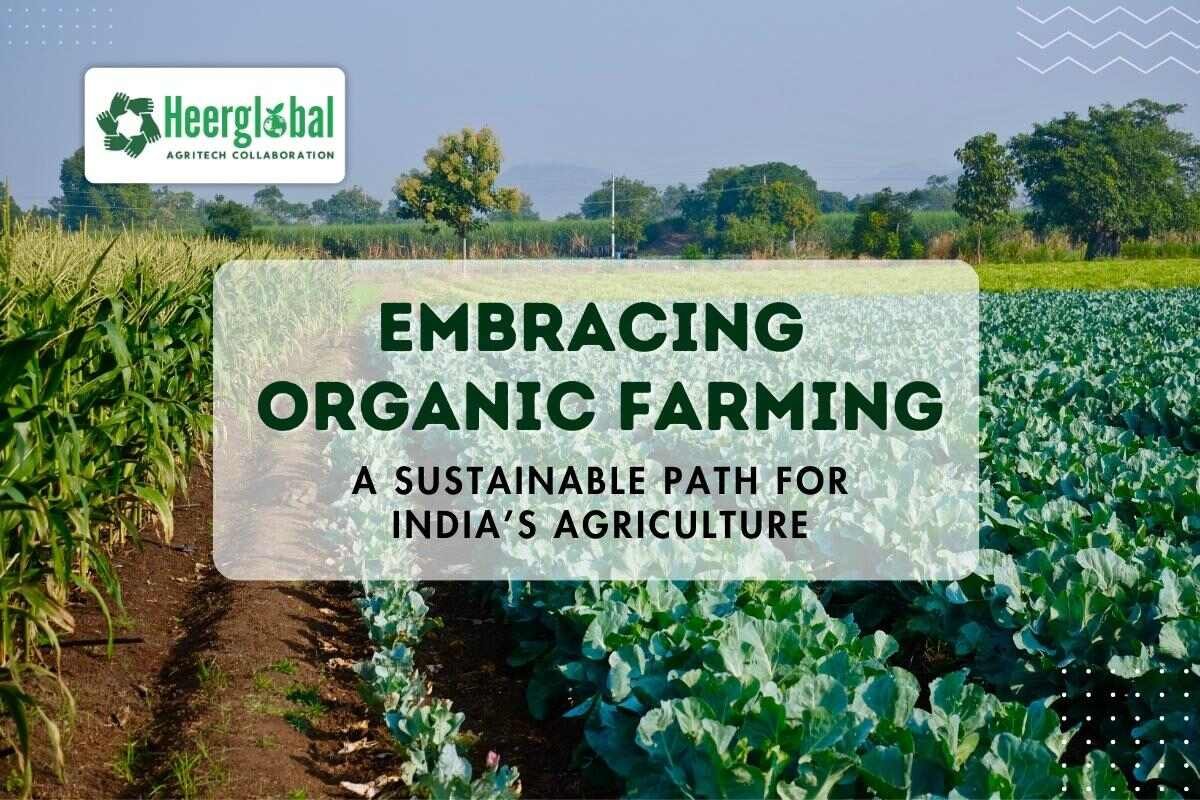Embracing Organic Farming: A Sustainable Path for India’s Agriculture
Organic farming in India was gaining momentum and making significant progress. India has been actively promoting organic farming practices to address the challenges posed by conventional agriculture, such as environmental degradation, soil health deterioration, and health concerns related to chemical residues in food.
Status of Organic Farming in India
India has one of the largest areas of organic agricultural land in the world. According to data from the Ministry of Agriculture and Farmers Welfare, India had over 3.6 million hectares of certified organic farmland. India is a major producer of organic agricultural products. The country cultivates a wide range of organic crops, including cereals, pulses, oilseeds, fruits, vegetables, spices, and tea, among others.
India is among the top organic product exporters globally. Organic products from India, such as rice, pulses, spices, and fruits, are in demand in various international markets, especially in Europe, the United States, and the Middle East.
The Indian government has been actively supporting organic farming through various schemes and initiatives. The Paramparagat Krishi Vikas Yojana (PKVY) and the National Program for Organic Production (NPOP) are some of the major schemes that provide financial assistance and technical support to farmers for organic cultivation.
The NPOP is responsible for the accreditation and certification of organic produce in India. It follows the guidelines and standards set by the National Standards for Organic Production and ensures the integrity of organic products in the market. Several states in India have also taken proactive measures to promote organic farming. For instance, Sikkim became the first fully organic state in India, with all its agricultural land certified as organic.
The domestic demand for organic products in India has been steadily increasing. Many consumers are now seeking organic alternatives due to health and environmental concerns. Consequently, organic retail outlets and e-commerce platforms selling organic products have experienced growth.
Challenges In Organic Farming
While organic farming is gaining popularity, it still faces challenges. Some of these challenges include the initial cost of certification and transition to organic practices, lack of awareness among farmers, and the need for more efficient marketing and distribution systems for organic products.
Modern agricultural practices, reliant on chemical inputs and genetically modified crops, have raised concerns about their long-term impact on human health, the environment, and the overall sustainability of the agricultural sector. In response to these challenges, the shift towards organic farming is need of this time but it is very difficult for country like India as very large area of agriculture and village economy depends of the farming as well as this time chemical uses in agriculture is on the top.
Advantage of Embracing Organic Farming
Advantage of Embracing organic farming practices offers a myriad of benefits that can revolutionize India’s agriculture and pave the way towards a more sustainable future.
The Health and Wellness Benefits
One of the primary reasons to move towards organic farming in India is the positive impact on human health and wellness. Organic produce is grown without the use of synthetic pesticides, herbicides, and genetically modified organisms (GMOs). As a result, consumers can enjoy fruits, vegetables, and other products free from harmful chemical residues. Studies have indicated that organic crops contain higher levels of essential nutrients, making them more nutritious and beneficial for overall health.
Environmental Conservation and Biodiversity
Conventional agriculture often relies heavily on chemical fertilizers and pesticides, which can have severe environmental consequences. Runoff from these chemicals can contaminate water sources, leading to water pollution and ecological damage. Organic farming, on the other hand, promotes biodiversity by avoiding the use of harmful chemicals, preserving natural habitats, and supporting various beneficial organisms like pollinators and soil microorganisms.
Sustainable Agriculture for the Future
Sustainability is at the core of organic farming. This agricultural approach emphasizes practices such as crop rotation, composting, and integrated pest management. Crop rotation ensures the health of the soil and reduces pest and disease pressures. Composting helps in enriching the soil with nutrients in a natural manner, reducing the need for chemical fertilizers. Integrated pest management involves using natural predators and traps to control pests, minimizing the reliance on synthetic pesticides. These practices help preserve resources for future generations, promote resilience to climate change, and reduce greenhouse gas emissions.
Global Market Opportunities
The global demand for organic products is on the rise, driven by an increasing awareness of health and environmental concerns. India, with its abundant agricultural resources, is well-positioned to capitalize on this growing market. By embracing organic farming, Indian farmers can tap into international markets and boost export revenues, thereby contributing to the country’s economic growth.
Government Support and Incentives
The Indian government has recognized the importance of organic farming and has introduced various farmers schemes and incentives to promote its adoption. These initiatives include financial assistance, subsidies, and support for organic certification. Such governmental support can ease the transition to organic practices and encourage more farmers to participate in the organic movement.
Conclusion
The time is ripe for India to embrace organic farming as a sustainable path for its agriculture. With the many health, environmental, and economic benefits associated with organic practices, this shift can lead to a greener and healthier future for the country. By prioritizing organic farming, India can enhance food security, protect natural resources, and contribute to a global movement towards sustainable agriculture. It is crucial for all stakeholders, including farmers, consumers, and policymakers, to work together in promoting and adopting organic farming practices to secure a thriving and resilient agricultural sector for generations to come.




